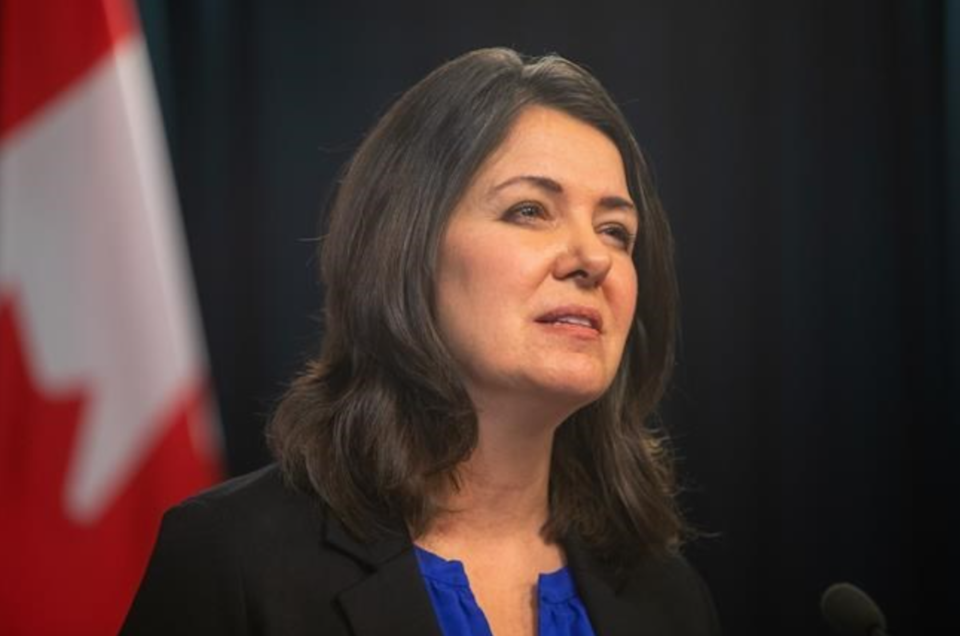Alberta’s controversial Sovereignty Act is finally being put to the test. Premiere Danielle Smith introduced the first Alberta Sovereignty Within a United Canada resolution on Nov. 27 in response to proposed federal net-zero electricity grid regulations.
If passed, the resolution would ask cabinet to order all provincial entities to refrain from enforcing or complying with federal Clean Electricity Regulations, Smith said during a media event Monday morning. The proposed federal rules would set emission standards for electricity generators that use fossil fuels, which Smith said is driving away investors and threatening the stability of Alberta’s electricity grid.
The resolution also instructs government to study the feasibility of creating an Alberta Crown Corporation to build new generation units or buy existing assets, like natural-gas power plants, where private industry is not confident in investing or undertaking the projects.
“We have tried to work with Ottawa to align their emissions-reduction efforts with our provincial plan to achieve a carbon-neutral power grid by 2050. Unfortunately, after months of meetings, they continue to reject this opportunity and remain committed to an absurdly unrealistic and unattainable goal of a net-zero power grid by 2035. We are left with no choice but to create a shield to protect Albertans from Ottawa’s dangerous and unconstitutional electricity regulations,” Smith said in a news release.
The resolution states that the ability to legislate and regulate the development of electricity is established in the Constitution of Canada as within provincial jurisdiction. If the federal government continues to pursue its clean electricity policies “this will end up in the court,” Smith said.
“And we want the Supreme Court to know that we are very considered in the measures that we're taking.”
Smith accused federal clean electricity regulations of creating uncertainty and scaring off industry operators, preventing more natural gas power plants from coming online in the province. “The only way that I could see that we would be able to protect our industry and our markets here, and our consumers, is by having a Crown Corporation should the federal government continue to proceed with their clean electricity (regulations),” Smith said.
The Alberta Crown Corporation would be wholly owned entity of the province and would function in the market as a “generator of last resort, not first resort,” Smith said, operating only if private businesses don’t step up to build more baseload power.
Alberta NDP Leader Rachel Notley said the resolution put forward by Smith itself will lead to instability and jeopardize substantial jobs and investment.
“Albertans want to move forward, but Danielle Smith and the UCP are holding us back with the so-called Sovereignty Act. The UCP is invoking a dishonest and illegal stunt that jeopardizes investment certainty, breaches treaty rights across the country, weakens national unity, and embarrasses Albertans on the global stage,” Notley said.
“Danielle Smith and the UCP are putting their own extremist politics ahead of economic common sense. There is $40 billion in federal money available to expand electrification in Canada. The UCP should be negotiating to get billions in investment from the federal government and moving to reduce emissions – something all major players in the Alberta oilsands are already moving to do.”
The Sovereignty Act was approved by the Alberta legislature in December 2022, but it has not yet been tested in court.




